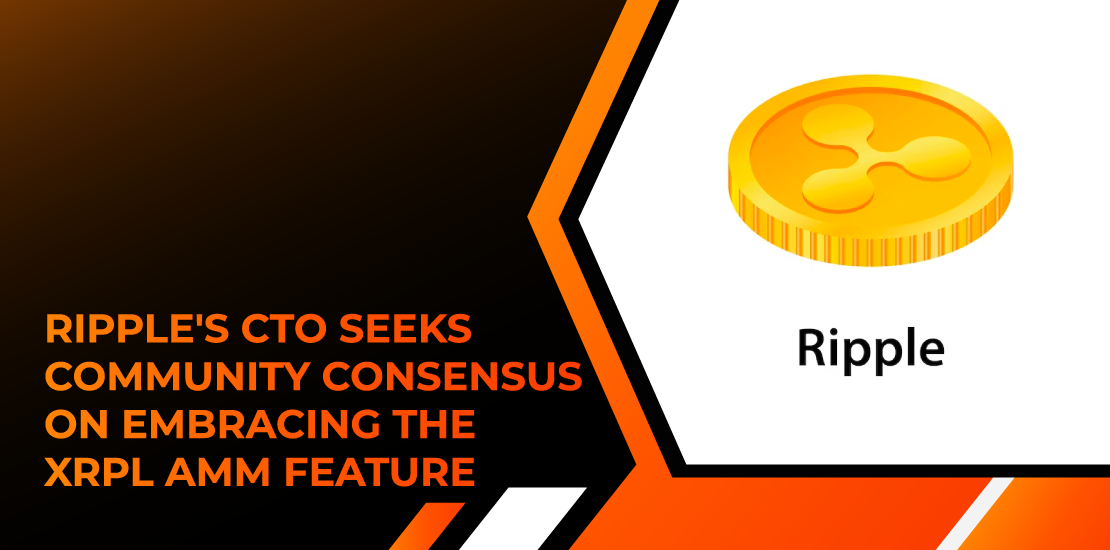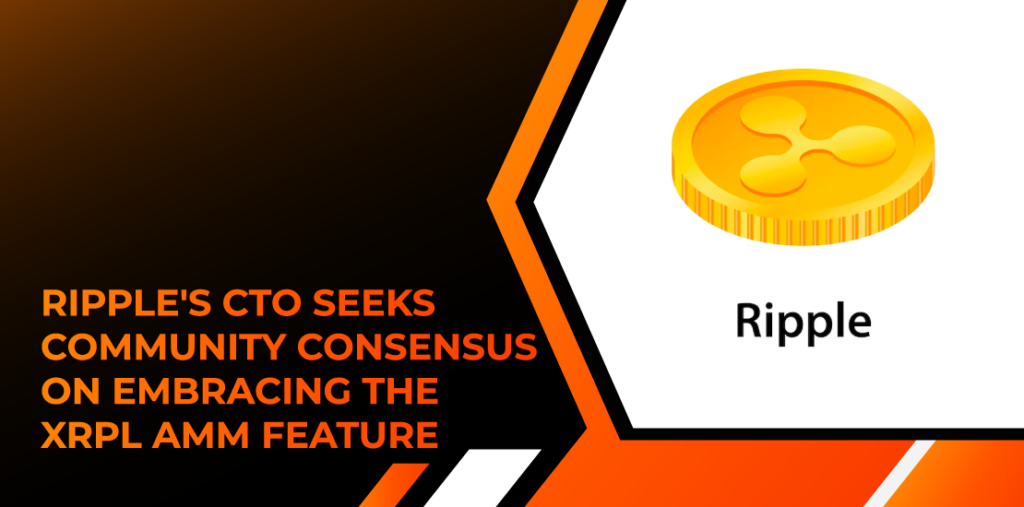- October 9, 2023
- Posted by: [email protected]
- Category:


Ripple’s Chief Technology Officer, David Schwartz, has expressed his support for the implementation of an automated market maker (AMM) feature on the XRP Ledger (XRPL). However, he stressed that this should only proceed if there is a consensus within the XRPL community.
Taking to X (formerly Twitter), Schwartz engaged in a discussion about the XRPL’s AMM feature, which he referred to as an intriguing component of decentralized finance (DeFi). The XRP Ledger is a decentralized blockchain renowned for its speed and scalability, making it well-suited for various financial applications, including cross-border payments and remittances.
Responding to a query from a community member regarding the timeline for implementing AMMs on XRPL following governance voting, Schwartz indicated that if the majority of the community supports the amendment, these changes could be implemented in as little as two weeks.
In addition to emphasizing the significance of obtaining a majority vote, Schwartz stated that, to the best of his knowledge, no validators currently support the vote. The AMM feature was introduced with the release of rippled version 1.12.0, which also introduced the potential clawback feature. Integrating an AMM not only involves introducing a new trading engine but also enables integration with the XRPL decentralized exchange.
Despite the significance of this feature, Schwartz advised validators against independently voting to promote these modifications. Instead, he stressed that “the community should reach a consensus first, and then validators should overwhelmingly vote YES when they perceive that the community is in agreement and sufficient nodes endorse the adjustment.”
In addition to his role at Ripple, Schwartz is well-regarded for his informative articles and his commitment to championing decentralization. Recently, he clarified misunderstandings surrounding the clawback feature, often perceived as intrusive by XRPL users. Schwartz explained that the feature is intended to protect developers from potential legal liabilities within the XRPL ecosystem.
Schwartz’s call for community consensus reflects the collaborative nature of blockchain and cryptocurrency development, where decisions are often made collectively to ensure the best interests of the network and its users are served.



